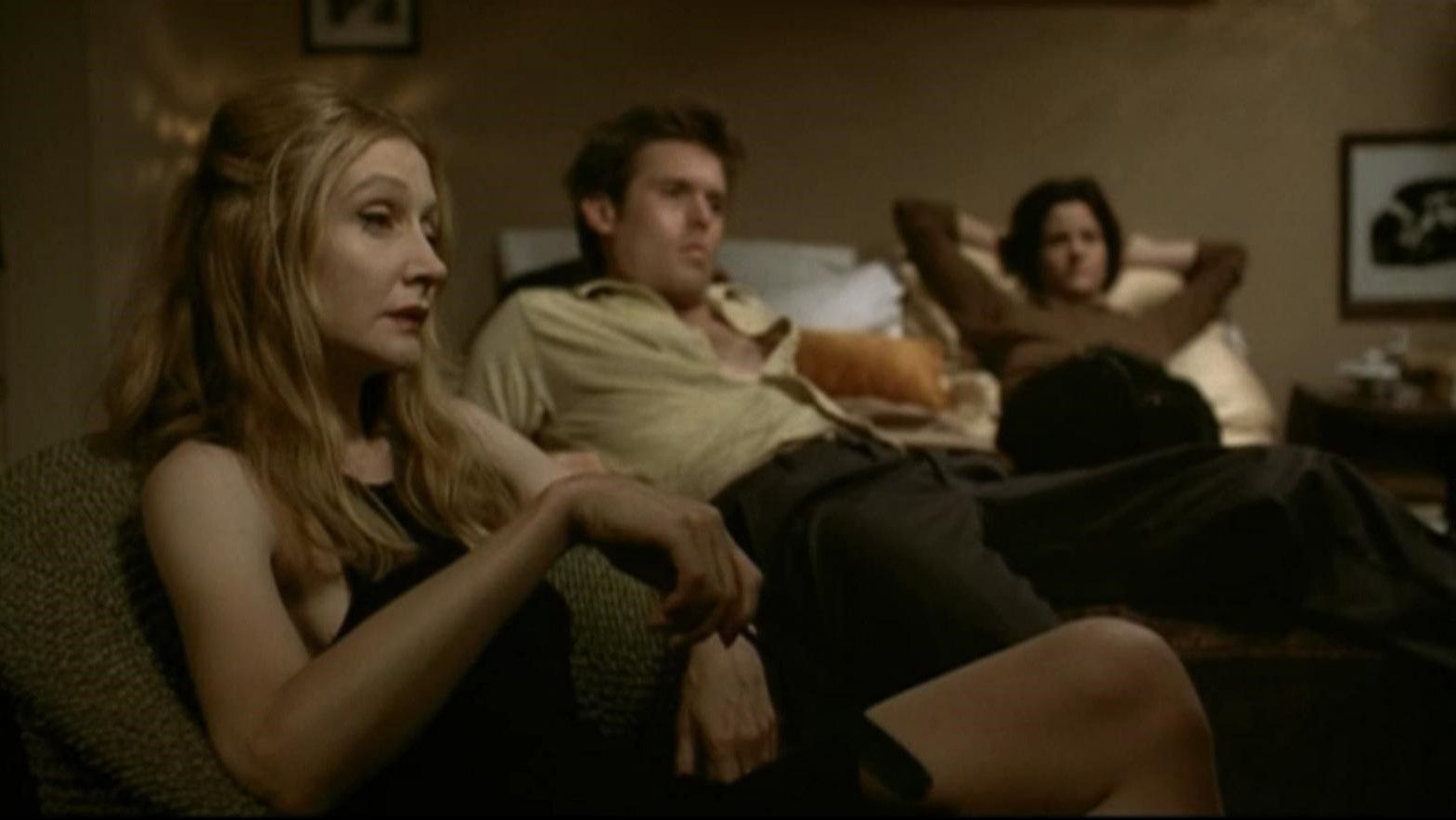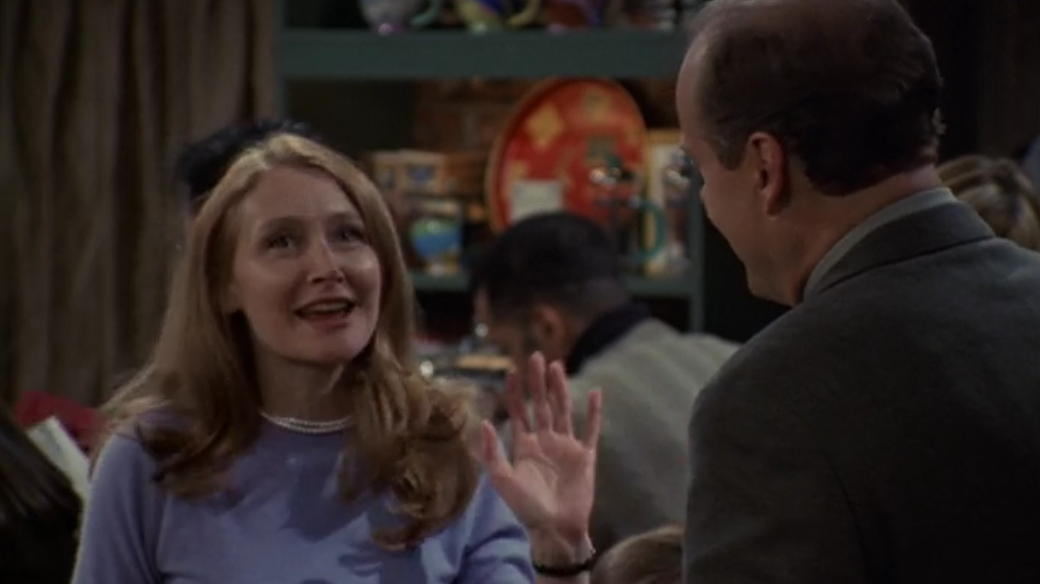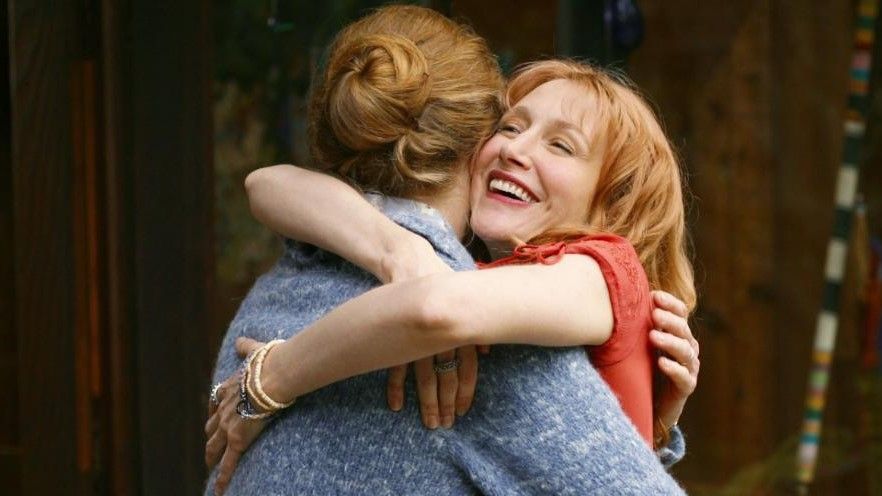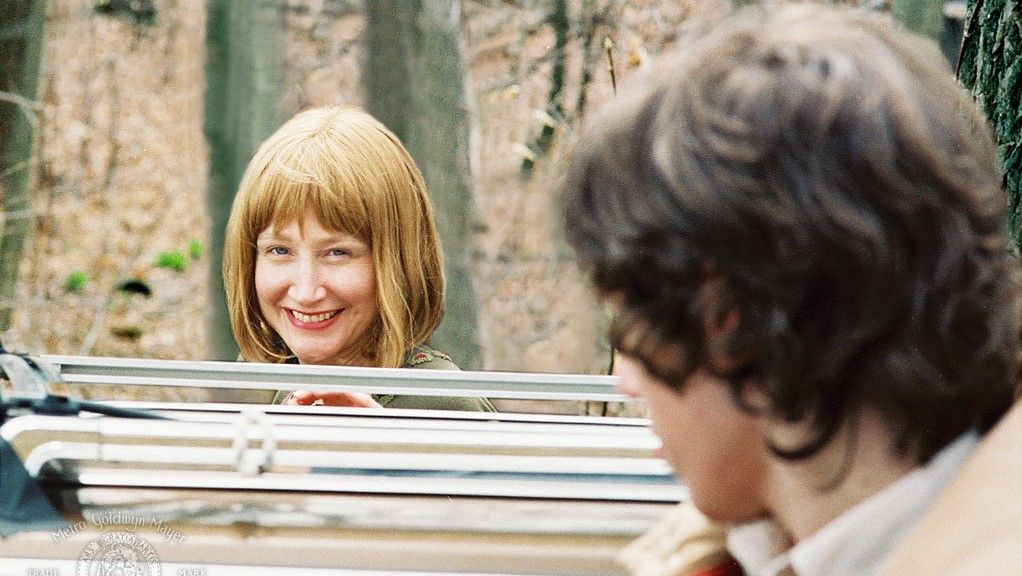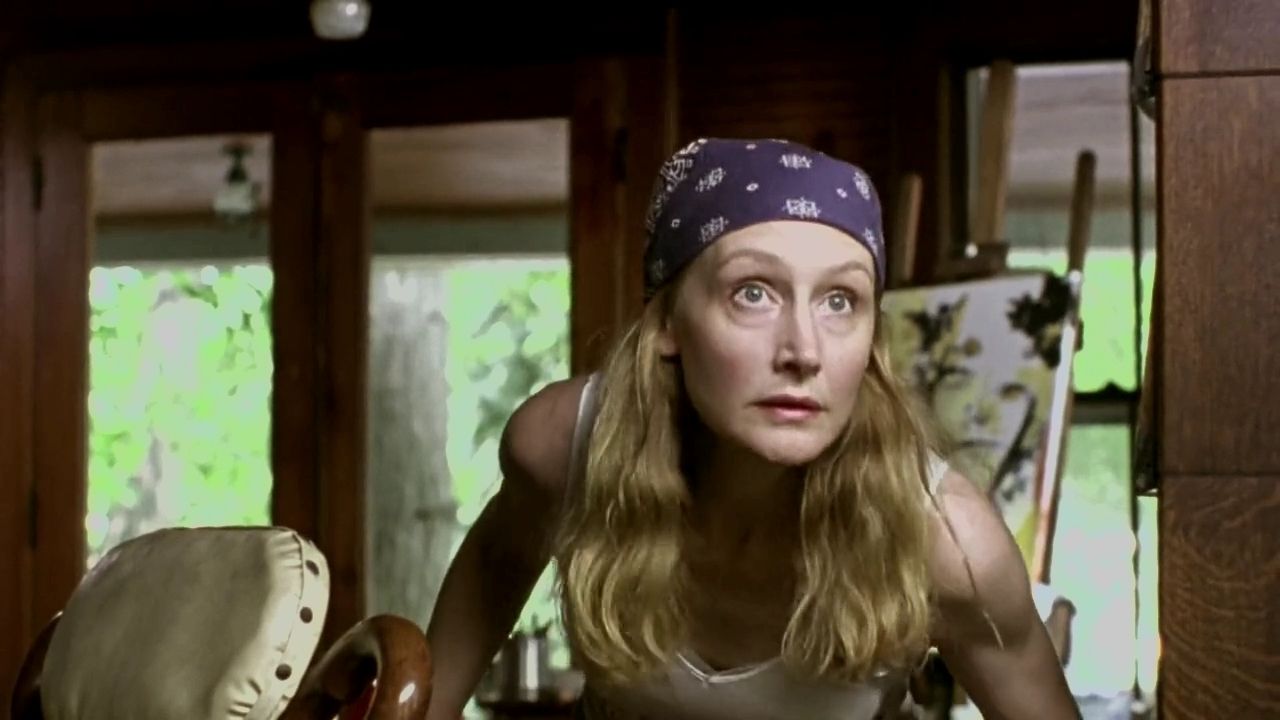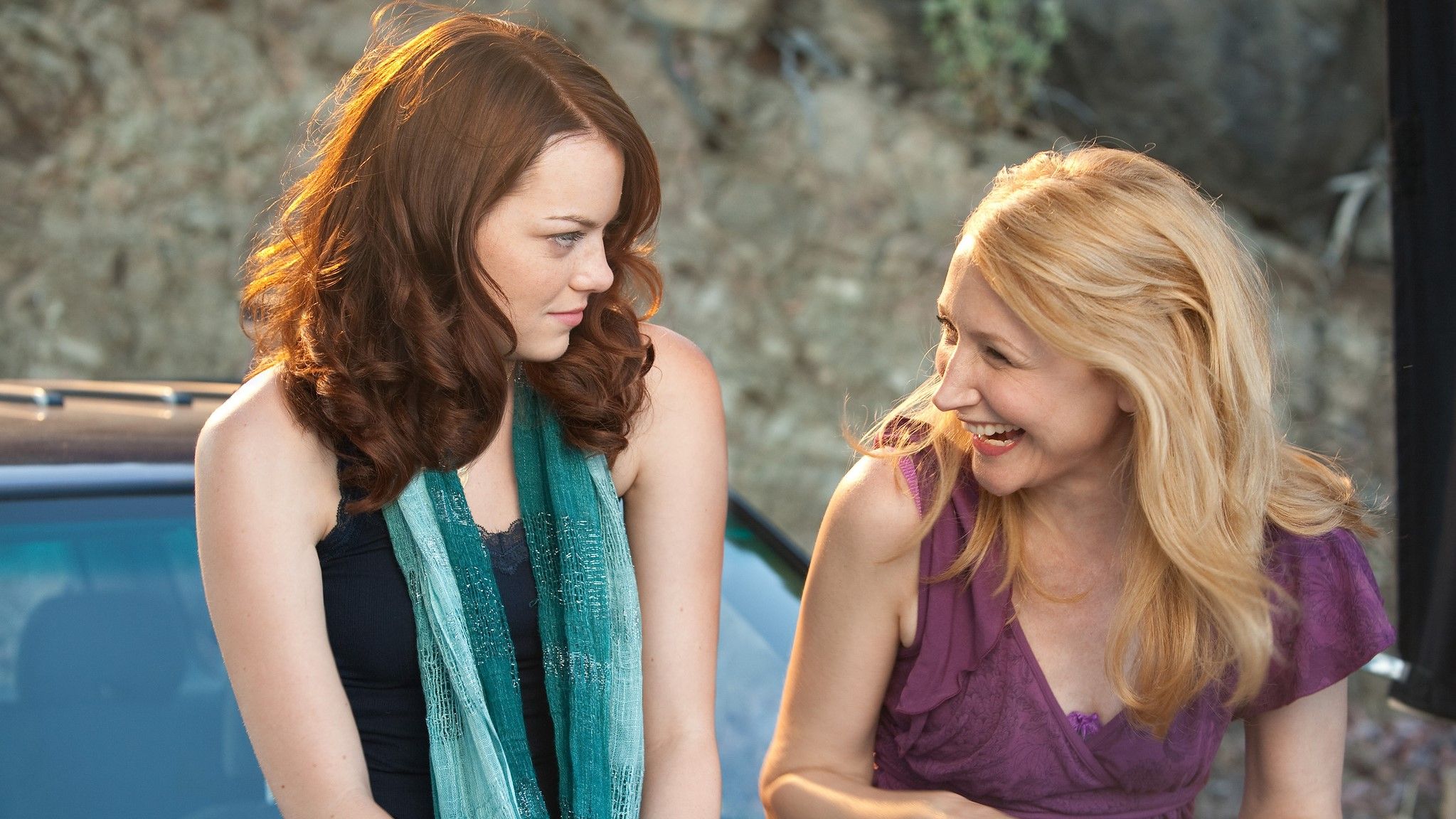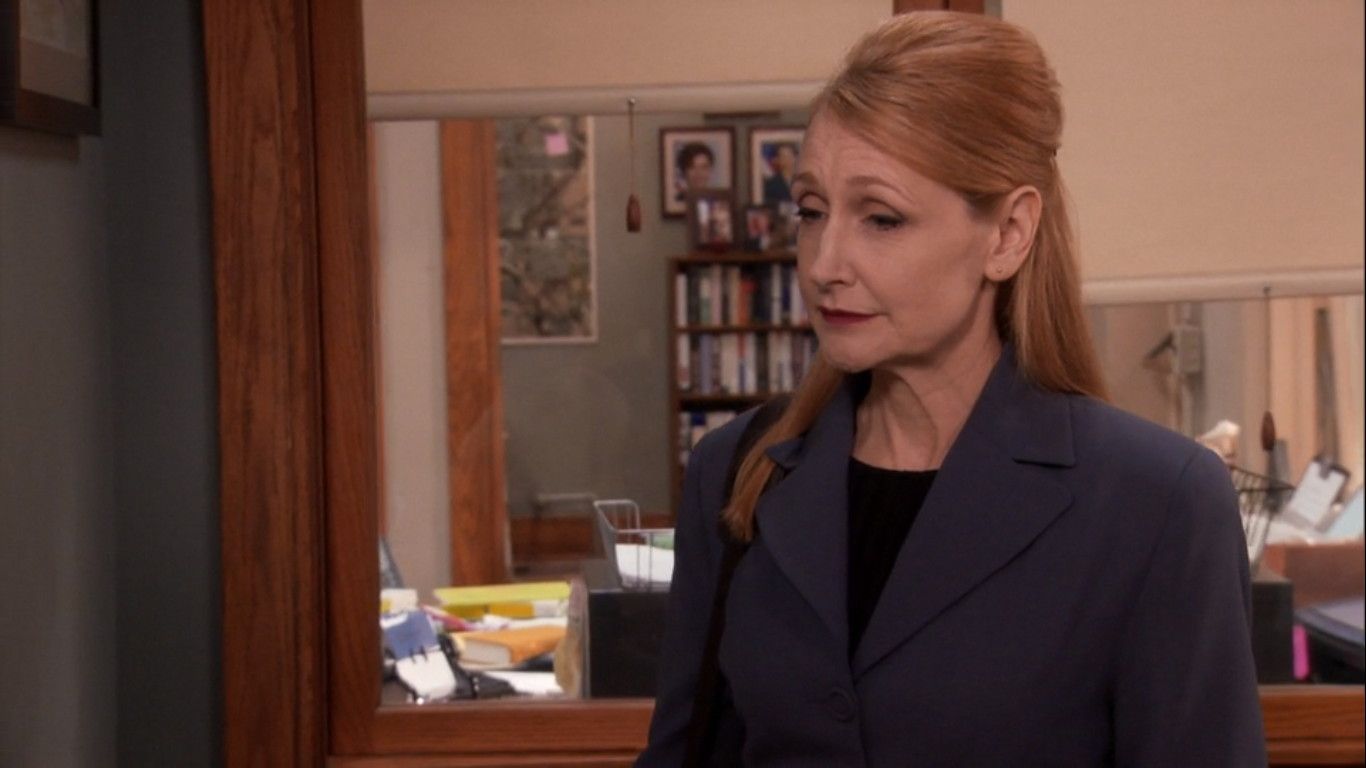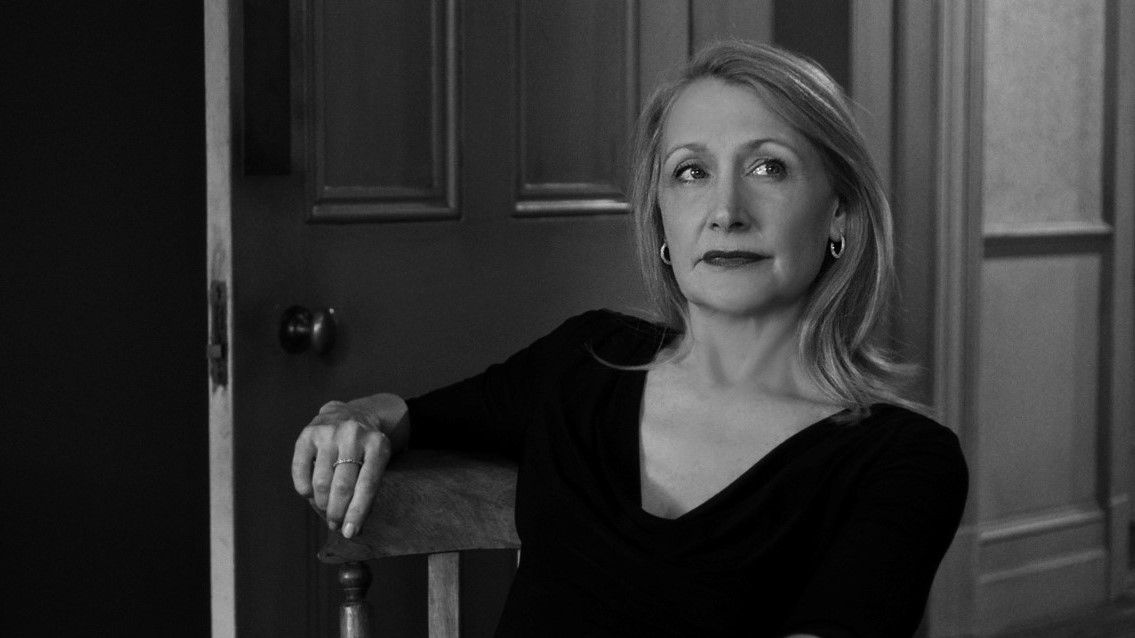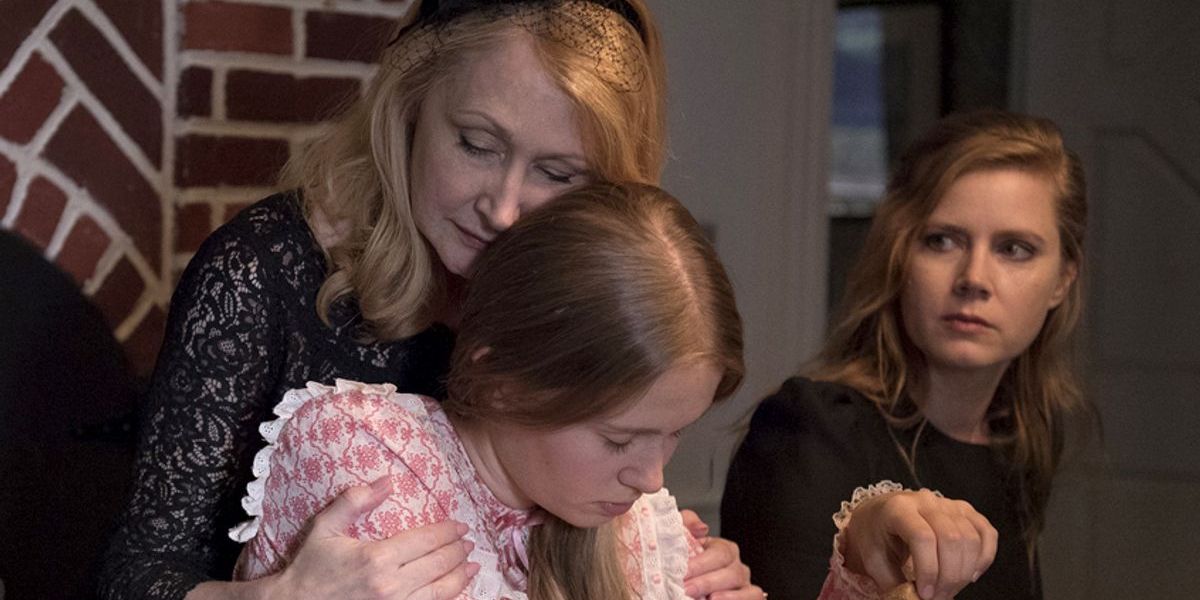In the modern pantheon of character actresses, Patricia Clarkson is near the very top, alongside hey-it’s-that-lady luminaries like Margo Martindale and Elizabeth Marvel. Even those who don’t recognize her name know her from somewhere. Over the past 30 years, she’s been a ubiquitous presence in film and television, popping up in everything from Law & Order to the Maze Runner movies. Like all great character actors, Clarkson is as distinctive as she is versatile: her striking features and husky voice are impossible to mistake for anyone else, but it’s impossible to pigeonhole her into one character type. She can convey icy authority, strung-out glamour, or motherly warmth, and all of it feels perfectly natural and lived-in. From prestige TV to high school sex comedies, here are nine of Clarkson’s most essential performances.
Greta in High Art (1998)
The debut feature of eventual Oscar nominee Lisa Cholodenko, High Art deals with Lucy (Ally Sheedy), a formerly-renowned photographer trying to make a comeback after spending years shooting up in her apartment. Despite the heavy subject, High Art is not without a sense of humor - just think about that title for a second - and much of it comes from Clarkson’s performance as Lucy’s girlfriend, Greta. A has-been German actress who name-drops Rainer Werner Fassbinder and sounds like Marlene Dietrich on codeine, Greta is a campy figure, and Clarkson makes her entertaining without going too broad. (“I like China, we had fabulous…opium there.”) But Greta is also a walking, talking cautionary tale (or at least a lurching, muttering one), and Clarkson smartly uses Greta’s theatrical world-weariness to convey the truth of the situation. All Greta has are her drugs and her girlfriend, and when it’s clear she may lose the latter, she reveals herself as the film’s aching heart.
Claire French in Frasier (1999-2000)
Dr. Frasier Crane (Kelsey Grammer) had many girlfriends over the course of his namesake series, but few were as well-suited for him as Claire French. She plays the cello! She speaks German! She loves foreign films and Kierkegaard! For an intellectual like Frasier, she’s almost too perfect, but Clarkson plays Claire with a lived-in authenticity that keeps things from feeling contrived. Rather than feeling like a plot device (which, thanks to some iffy writing, she basically was), Claire feels like a person in Clarkson’s capable hands - someone who existed before she met Frasier in that electronics store, and continued to exist after storming out of his life. It’s a shame that Frasier’s baggage kept him from making it work with Claire, but her role on such a popular sitcom helped raise Clarkson’s profile as she entered a new, prolific stage of her career. If nothing else, at least audiences got to hear Clarkson sink her teeth into pronouncing the title of Das Boot.
Sarah O’Connor in Six Feet Under (2002-2005)
Patricia Clarkson has two Emmys, both for her guest appearances as Sarah O’Connor on Six Feet Under; and while she deserves at least one more (for roles this article will get to soon enough), her performance as Sarah is more than worthy of recognition. The Bohemian sister of Ruth Fisher (Frances Conroy), Sarah initially floats into the dysfunctional Fisher household on a patchouli-scented breeze. Unlike the repressed Ruth, Sarah’s body language is loose and expressive, and Clarkson makes her a figure of welcome levity on such a morbid show. (Her matter-of-fact gift of a bonsai tree for her niece’s “knowledge corner” strikes exactly the right weird-aunt tone.) But as is always the case on Six Feet Under, there’s a deeper, darker truth that can’t stay buried for long. Clarkson grapples with Sarah’s grief, guilt, and self-loathing throughout her scattered appearances, exploring every complicated corner of her character. Crucially, she never plays Sarah’s free-spirited creativity as a total facade: it’s just one part of her, as true in its own way as her pain.
Joy Burns in Pieces of April (2003)
Short and slight, with a gritty surface that hides the heart of a fluffy sitcom, Pieces of April is an archetypal early-2000s Sundance dramedy. The titular April (Katie Holmes) is a young screw-up in a shabby Manhattan apartment who must race against time to host her estranged family for Thanksgiving dinner, a situation made more urgent by the fact that it may be her mother’s last. In a performance that earned Clarkson her first (and thus far only) Oscar nomination, she initially plays Joy with such exhausted pessimism that her name seems like bitter irony. Of course, terminal breast cancer can do that to a person, and eventually Clarkson teases layers out of Joy’s character. She indulges in gallows humor with impish glee, finds temporary solace in her son’s weed supply, and soon comes to realize that, despite everything, April’s still her daughter. Their emotional reunion towards the end of the movie is all the sweeter thanks to Clarkson’s understated gravitas: she’s a woman running out of time, realizing that life is quite literally too short to stay mad at her daughter.
Olivia Harris in The Station Agent (2003)
The same year as Pieces of April, Clarkson starred in another low-budget indie dramedy that premiered at Sundance: The Station Agent, the debut feature of future Oscar winner Tom McCarthy. Centered on a misanthropic man with dwarfism named Fin (Peter Dinklage) who lives in an abandoned train depot and is brought out of his shell by various colorful friends, The Station Agent is the kind of film that could have been insufferably twee without its precisely calibrated tone. Luckily, it stays sweet rather than saccharine, thanks to McCarthy’s knack for quiet moments and the efforts of the skilled cast — especially Clarkson. As Olivia Harris, an artist grieving the death of her son, Clarkson strikes exactly the right tonal balance. Her grief never defines her, but it never leaves her, either; she’s capable of humor and kindness and joy, but Clarkson never lets the audience forget the weight on Olivia’s shoulders. It makes every part of her journey, from her friendship with Fin to her eventual attempted suicide, feel honest and earned.
Rosemary Penderghast in Easy A (2010)
Clarkson’s career is filled with credits in arthouse dramas and wry indie comedies, but Easy A offered her a chance to exercise a different artistic muscle. Rosemary Penderghast, the open-minded, cheerfully embarrassing mother of young Olive (Emma Stone), is the kind of broad role that would usually go to some Saturday Night Live alumna or another. But Clarkson never plays Rosemary as a joke, even though she’s responsible for some of the movie’s biggest laughs. She plays everything, from an impromptu swear-word guessing game to a motherly pep talk about being a slut, with total sincerity and compassion. Her typically calm, measured delivery makes it all the funnier when she talks about the contortionist sex positions she could reach when she was young, but it also makes her believable as a loving, non-judgmental support system for Olive when her pretend-floozy scheme goes awry. Clarkson makes Rosemary the mother anyone could love, provided they don’t mind a bit of oversharing.
Tammy One in Parks and Recreation (2011)
What kind of woman scares a man like Ron Swanson (Nick Offerman)? Clarkson answers that question the moment she steps into the cozy world of Parks and Recreation like the Angel of Death in a crisp pantsuit. Tammy One (so named for being Ron’s first ex-wife named Tammy) is cold, ruthless, and terrifyingly competent, capable of bending the whole office to her will within minutes. “I don’t think it will be necessary for you to speak again while I’m here,” she calmly informs Leslie Knope (Amy Poehler), and that’s that. Clarkson is perfectly cast, emphasizing Tammy’s inhuman effect as well as her strange power. Her icy stare and low, raspy voice could scare the Terminator into submission, but she has an undeniable charisma: as Tammy, Clarkson’s hot-knife-through-butter intensity and the ASMR-esque quality of her voice is captivating, almost hypnotic. It’s easy to believe that this woman could turn a libertarian curmudgeon into a clean-shaven, pro-government patsy within a week, which makes it all the more impressive when Ron banishes her at the end of the episode.
April in The Party (2017)
The Party is about one of those parties common in movies (or, more often, theater), where wine and canapés inevitably give way to dramatic revelations and petty cruelty. It doesn’t break new ground, but it’s zippy, agreeably short, and very well-acted, from Kristin Scott Thomas’ frazzled politician to Cillian Murphy’s coked-up finance weasel. But Clarkson may be the ensemble’s MVP: she plays April, the cynical friend of party-thrower Janet (Thomas), who drags along her daffy New Age husband Gottfried (Bruno Ganz). With her poise and deadpan delivery, Clarkson delivers some of the script’s best zingers (“You’re a first-class lesbian and a second-rate thinker!”), and her biting wit cuts through the party’s fake social niceties. But she’s not all piss and vinegar: after the party starts to unravel, April has a heart-to-heart with Janet, and tells her — truthfully — that she’s very proud of her friend’s accomplishments. Even if it’s not much help to Janet at that point, it’s a sweet moment, and Clarkson makes it land as effectively as the caustic banter.
Adora Crellin in Sharp Objects (2018)
In September 2019, the wrong Patricia won. Sure, Patricia Arquette did fine work as Dee Dee Blanchard in The Act; however, by giving her Best Supporting Actress in a Limited Series, the Emmys snubbed Patricia Clarkson’s masterful performance in Sharp Objects. Her Adora Crellin is one of the worst mothers in the history of television, up there with Livia Soprano and Cersei Lannister. Corrupt, manipulative, and casually cruel, she killed one daughter, turned another into a murderer, and irreparably damaged the psyche of her third. Adora is a hateful character, and Clarkson plays her with pitch-perfect Southern passive-aggression, charming and graceful until her voice lowers into a sinister hiss.
But as villainous as she is, Adora never becomes a caricature. The theme of the series (as with Gillian Flynn’s original novel) is how women are victimized by misogyny even if they perpetuate it, and Clarkson makes it clear that Adora is as damaged as her daughters. In the series’ most heartbreaking scene, Adora tells her daughter Camille (Amy Adams), quietly and intimately, that she never loved her. “You were born into it, that cold nature,” she says, caressing Camille’s face. “I hope that’s some comfort to you.” Through Clarkson’s delivery, exhausted but not without tenderness, it’s clear Adora thinks she really is comforting Camille — and therein lies the crux of the story.


